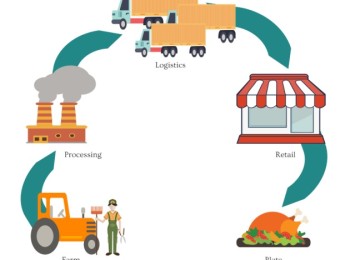This specialised course equips Executive Assistants with the emotional intelligence (EQ) tools required to excel in high-pressure executive environments. As EAs frequently navigate complex interpersonal dynamics, manage sensitive information, and serve as communication bridges, emotional intelligence becomes a critical enabler of influence, resilience, and professional growth.
Participants will learn to manage their emotions, understand others' motivations, and foster productive relationships across the organisation. Through practical frameworks and scenario-based learning, this programme strengthens self-awareness, empathy, conflict management, and executive presence — transforming EAs into trusted advisors capable of supporting leaders effectively and strategically.
By the end of this course, participants will be able to:
- Understand the core components of emotional intelligence and their relevance to EA responsibilities.
- Manage stress, pressure, and competing priorities with emotional balance.
- Strengthen communication, empathy, and interpersonal influence.
- Navigate difficult conversations and manage office dynamics with professionalism.
- Enhance executive presence and support leadership with confidence and clarity.
Ideal for:
- Executive Assistants and Personal Assistants
- Office Managers and Administrative Professionals
- Project Support Officers
- EAs seeking to strengthen leadership, influence, and emotional resilience
The programme uses interactive discussions, real-life scenarios, reflective exercises, role-play activities, and tools for daily emotional intelligence practice. Each module offers practical takeaways that participants can implement immediately.
Day 5 of each course is reserved for a Q&A session, which may occur off-site. For 10-day courses, this also applies to day 10
Section 1: Understanding Emotional Intelligence in the Executive Environment
- Defining EQ and its importance in high-level administrative roles
- The five pillars of EQ: self-awareness, self-regulation, motivation, empathy, and social skills
- How emotional intelligence influences decision-making and productivity
- The EA as a relationship manager and communication bridge
Section 2: Self-Awareness and Emotional Regulation
- Recognising emotional triggers and stress patterns
- Strengthening self-reflection and emotional literacy
- Techniques for staying calm under pressure
- Managing workload, boundaries, and emotional fatigue
- Psychological flexibility and mindset reframing
Section 3: Communication, Listening, and Interpersonal Influence
- Active listening skills for effective executive support
- Reading verbal and nonverbal cues in high-stakes conversations
- Building trust and rapport with executives and stakeholders
- Assertiveness versus aggressiveness — finding the right balance
- Managing communication styles across different personalities
Section 4: Conflict Resolution and Office Dynamics
- Understanding sources of conflict in executive offices
- EQ-based negotiation strategies
- Mediating tensions between teams or departments
- Handling criticism, feedback, and difficult conversations
- Professional diplomacy and emotional neutrality
Section 5: Executive Presence and Leadership Support
- Enhancing confidence, credibility, and influence as an EA
- The EA as a strategic partner — shifting from support to leadership
- Maintaining discretion, confidentiality, and emotional resilience
- Anticipating executive needs through empathy and situational awareness
- Creating a long-term EQ development plan for continuous growth
Upon successful completion of this training course, delegates will be awarded a Holistique Training Certificate of Completion. For those who attend and complete the online training course, a Holistique Training e-Certificate will be provided.
Holistique Training Certificates are accredited by the British Accreditation Council (BAC) and The CPD Certification Service (CPD), and are certified under ISO 9001, ISO 21001, and ISO 29993 standards.
CPD credits for this course are granted by our Certificates and will be reflected on the Holistique Training Certificate of Completion. In accordance with the standards of The CPD Certification Service, one CPD credit is awarded per hour of course attendance. A maximum of 50 CPD credits can be claimed for any single course we currently offer.
- Course Code MG1 - 121
- Course Format Classroom, Online,
- Duration 5 days













